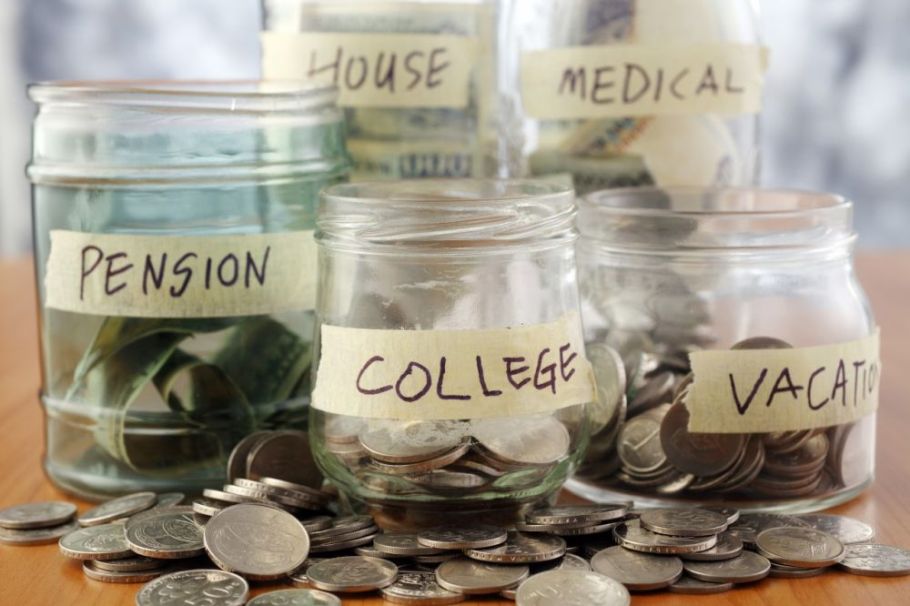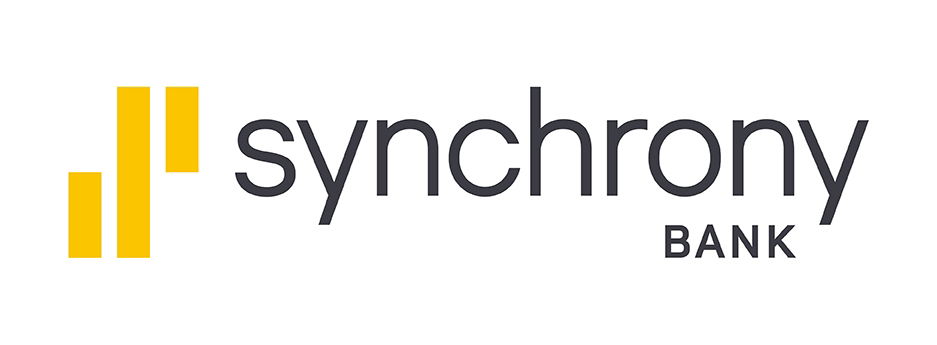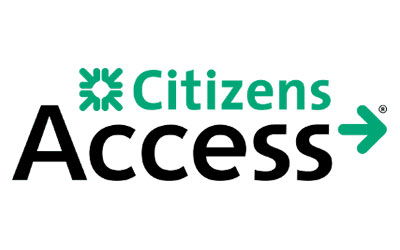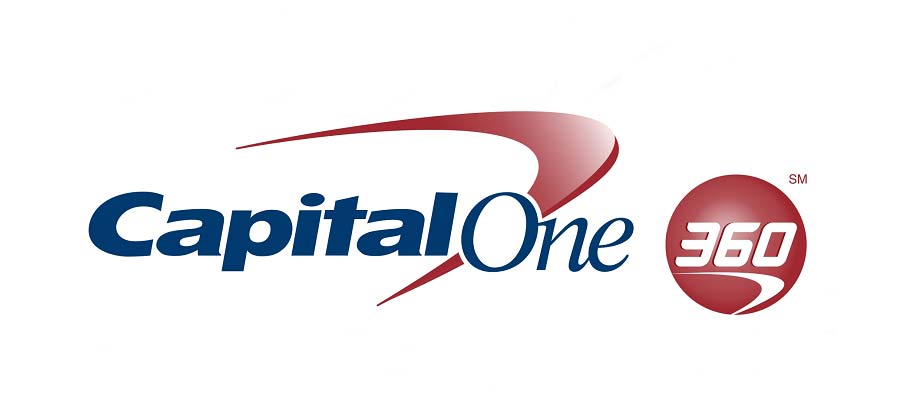Whether you’re setting aside money for a long-term goal or a short-term need, the right savings account can help you save in the best way possible.
Maybe you’re looking for a high interest rate or prefer help and incentives for meeting your goals. Or perhaps you want a low-maintenance account with zero fees.
Whatever individual services you need, there’s an account for you. We’ve searched high and low for the best savings accounts available in 2026. Read on to find the one that best fits your needs.
Best High-Yield Savings Accounts
When you need to keep your cash accessible but still want to earn as much interest as possible, a high-yield savings account is likely what you’re looking for.
While most banks only offer a fraction of a percentage point as interest, a few financial institutions are willing to pay more for the privilege of holding your account. Take a look at our top picks for the best high-yield savings accounts.
1. Raisin
Raisin isn’t a bank—it’s a centralized savings marketplace that connects you with top rates from partner banks and credit unions across the country.
2. SoFi
The SoFi Checking and Savings account offers a high-interest opportunity, with up to 3.30% APY on savings and 0.50% APY on checking.
3. LendingClub
The LendingClub High-Yield Savings account offers an exceptional opportunity to amplify your savings with one of the best rates available, earning a solid 4.00% APY on your entire balance.
4. Pibank
Pibank offers one of the most competitive high-yield savings accounts available, with an impressive 4.60% APY on all balances.
5. EverBank
The EverBank Performance Savings account offers an attractive 3.90% APY, making it an excellent option for anyone looking to enhance their savings effectively.
6. Bask Bank
Bask Bank offers a competitive Bask Interest Savings Account with an impressive 3.75% APY, making it one of the top choices for high-yield savings.
7. Chime
Chime® offers an online savings account with no monthly fees, no minimum balance requirements, and easy access through a well-designed mobile app.
8. Synchrony
A Synchrony Bank high-yield savings account comes with an annual percentage yield (APY) of 3.65%. Additionally, there is no need to maintain a minimum daily balance.
9. Barclays
A Barclays online savings account has one of the best interest rates on the market today. Currently, you can open a savings account with a 3.60% APY.
10. Citizens Access
If you’re looking for a way to grow your money while also avoiding market risk, the High-Interest Online Savings account at Citizens Access Bank is a great option.
11. Marcus by Goldman Sachs
With most high-yield savings accounts, you’re also looking at high minimum balances and other costs that can offset the interest you earn.
12. American Express
The American Express National Bank provides a compelling savings opportunity with a 3.30% APY on its online savings accounts, exclusively available to American Express cardholders.
13. Capital One
The Capital One 360 Performance Savings account offers an appealing 3.40% APY, making it an excellent choice for growing your personal savings.
14. Discover
The Discover Online Savings account is an excellent option for those looking for a high-yield savings account with added benefits. With a 3.40% APY, customers can earn more on their savings.
15. Upgrade
The Upgrade Premier Savings account is a strong option for anyone focused on building savings efficiently.
What Is a Savings Account and Why It Matters
A savings account is a secure place to store your money while earning interest. It helps you grow your savings over time and keeps your funds accessible when you need them. Whether you’re building an emergency fund, saving for a big purchase, or just setting money aside for the future, a savings account gives you a structured way to reach your financial goals.
Unlike a checking account, which is designed for everyday spending, a savings account is meant to help you hold on to your money and watch it grow. Many banks offer automated transfers, making it easier to stay consistent with saving. Plus, since savings accounts are typically FDIC- or NCUA-insured, your money is protected up to $250,000, giving you peace of mind.
Types of Savings Accounts
When it comes to putting your money into savings, you have various options to choose from. Here are the most popular types of savings accounts:
- Traditional savings accounts: These are your basic savings accounts readily available at banks and credit unions. They provide a simple solution for people who prefer a straightforward approach and desire quick access to their money.
- High-yield savings accounts: A high-yield savings account offers a higher interest rate compared to traditional savings accounts. It’s a great option for anyone who wants to maximize their returns with minimal hassle.
- Online savings accounts: The key advantage of these accounts is that they are offered by online-only financial institutions, which generally have lower overhead costs compared to traditional brick-and-mortar banks. As a result, they can offer significantly higher savings account interest rates, helping your money grow faster.
- Money market accounts: A money market account typically has a higher interest rate and requires a larger minimum balance than a traditional savings account. They’re ideal for people with substantial savings.
- Certificates of deposit (CDs): A certificate of deposit (CD) is a type of savings account that lets you deposit money for a set period of time, usually several months to a few years. In return, you’ll earn a higher interest rate. However, you can’t access your money until the CD matures without paying a penalty. They’re ideal for those who want to save for a specific goal but won’t need to access the money for a while.
Pros and Cons of a Savings Account
A savings account can be a beneficial tool for managing your finances, offering a safe place to store your money while accumulating interest. However, like any financial product, it comes with its own set of pros and cons. Here’s what you should consider:
Pros
- Security: Savings accounts are one of the safest places to store your money. They are typically insured up to $250,000 by the Federal Deposit Insurance Corporation (FDIC) in the U.S., or a similar entity in other countries, protecting your funds even if the bank fails.
- Accessibility: Savings accounts allow you to access your money quickly and easily when you need it. Most banks offer online, ATM, or branch access to your account, making it simple to withdraw funds.
- Interest earnings: Money in a savings account earns interest over time, helping your savings grow. While the interest rates are often modest, they are generally better than checking accounts or keeping cash under the mattress.
- Encourages saving: Having a separate savings account can help reinforce good financial habits by encouraging you to save money regularly. Many banks offer automated transfers, which can facilitate consistent saving.
Cons
- Low interest rates: The interest rates on savings accounts are typically low compared to other investments, such as stocks or bonds. Inflation can sometimes outpace the interest earned, potentially reducing your buying power over time.
- Limited transactions: Savings accounts in the U.S. are subject to Regulation D, which limits certain types of withdrawals and transfers to six per month. Exceeding this limit may result in fees, account closure, or conversion to a checking account.
- Minimum balance requirements: Some banks require a minimum balance in the savings account to avoid monthly fees or to earn the highest advertised interest rate. This can be a hurdle for people who can’t maintain the required balance.
- Potential fees: While many savings accounts are free, some may charge fees for account maintenance, low balances, or excess transactions. It’s essential to understand these potential costs before opening an account.

How to Choose the Best Savings Account
When choosing the best high-yield savings account, there are several features to consider to make sure it meets your specific needs and goals. These include:
- Annual percentage yield (APY): APY is the total amount of interest earned on an account over the course of a year, based on the interest rate and frequency of compounding. Use it to compare the returns offered by different high-yield savings accounts.
- Minimum balance requirements: Some savings accounts may require you to keep a minimum balance to avoid fees. Make sure to check for this when comparing accounts.
- Fees: Maintenance and withdrawal fees are examples of fees that some savings accounts may have. Review and compare these fees among different accounts to understand the costs.
- Accessibility: Consider the ease of managing your account and accessing your funds through online and mobile banking, ATM access, and local branches.
By considering these key features, you can find the savings account that meets your financial goals and makes managing your money a breeze.
What You Need to Open a Savings Account
Opening a savings account is simple, but you’ll need to have certain information ready before you start. Here’s what most banks and credit unions require.
Personal Identification
You’ll need a valid government-issued ID, such as a driver’s license, passport, military ID, or state-issued ID. Some banks may also require your Social Security Number (SSN) or Individual Taxpayer Identification Number (ITIN) for verification.
Proof of Address
Banks typically ask for proof of your residential address. This could be a utility bill, rental agreement, or mortgage statement. A P.O. Box usually won’t be accepted.
Contact Information
Your phone number and email address are required so the bank can send account-related notifications. Make sure the details are accurate to avoid missing important updates.
Initial Deposit
Many savings accounts require a minimum deposit to open. The amount varies by institution—some allow you to start with as little as $1, while others may have higher requirements.
Employment and Income Details
Some banks ask for information about your job and income. This isn’t always required, but it helps banks assess your financial situation.
Co-Owner Information (If Applicable)
If you’re opening a joint savings account, you’ll need the identification and contact details of the co-owner.
Once you have your documents ready, you can apply online or visit a branch. The bank will review your details, verify your identity, and process your initial deposit.
Before finalizing your account, ask about fees, balance requirements, and any restrictions that might apply. Knowing these details ahead of time will help you manage your savings account more easily.
Bottom Line
Choosing the right savings account is one of the smartest moves you can make for your financial future. Whether you’re looking for the highest interest rates, minimal fees, or convenient digital access, there’s an account that fits your needs.
High-yield savings accounts can help your money grow faster, while online banks often provide better rates than traditional institutions. Just keep in mind that interest rates and terms can change, so it’s a good idea to review your options regularly to ensure you’re still getting the best deal.
Before opening an account, compare APYs, fees, and accessibility to find the best fit for your financial goals. The right savings account won’t just store your money—it will help it work for you.
Frequently Asked Questions
Can I open multiple savings accounts?
Yes, you can open as many savings accounts as you’d like. Some people use multiple accounts to separate savings goals—such as one for emergencies and another for travel. Just make sure to track them carefully and avoid any minimum balance fees or limits on transfers.
Can I access my savings account through online or mobile banking?
Yes, nearly all savings accounts today offer online and mobile banking. This makes it easy to check your balance, transfer funds, and track your savings anytime, from anywhere. Most banks also provide secure apps with features like mobile check deposit and instant account alerts.
Is my money safe in an online savings account?
As long as your online savings account is with an FDIC-insured bank or NCUA-insured credit union, your deposits are protected up to $250,000 per depositor, per institution. Even if the bank fails, your money is still secure within those limits.
What features make a savings account stand out?
The best savings accounts usually offer a high APY (typically 3% or more), no monthly fees, and easy access through mobile and online platforms. Look for added benefits like automatic transfers, bonus offers, and ATM access, all backed by FDIC or NCUA insurance.
Is the interest I earn on savings accounts taxable?
Yes, any interest you earn on a savings account is considered taxable income. Banks typically send a 1099-INT form if you earn $10 or more in interest in a calendar year, and you must report this when filing your federal and possibly state taxes.
How often does savings account interest compound?
It depends on the bank, but most high-yield savings accounts compound interest daily and credit it monthly. Daily compounding helps your balance grow faster compared to accounts that compound monthly or quarterly. Always check the compounding frequency in the account terms.


















